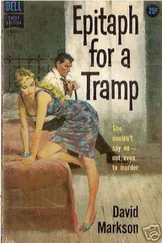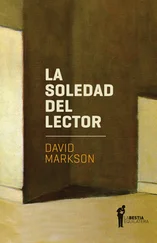Doubtless I would have expressed an identical thought on the night when my earlier house was turning into little more than an upside down glow on the clouds, in fact, had I had a rowboat to express it in at the time.
Perhaps all such thoughts might very well fall into the same category as the thought that there is somebody at a window in a painting when there is nobody at the window in the painting, since I would appear to have verified that paintings are never basically what one thinks of them as being either.
Then again it is perhaps questionable that I have verified any such thing.
Continuing to think in such terms one might as well ask if I had ever truly walked to the other house to begin with.
Undeniably I walked to the other house, since I can distinctly remember the poster, which is taped to the living room wall.
The poster shows Jane Avril and three other Paris dancers. In fact it also lists all of the dancers' names, including hers.
The other names that the poster lists are Cleopatre and Gazelle and Mlle. Eglantine.
Well, I have a vague recollection that I may have spoken about this before, even.
On the other hand there is no way of telling if the poster had been painted before or after Toulouse-Lautrec may have handled my stick, of course.
There is nothing in Jane Avril's expression which gives any hint about her affair with Brahms either, as it happens.
Still, one remembers other paintings of her in which she appears more than sensitive enough to have attracted him.
Unfortunately there is no life of Brahms in the other house in which I might have looked up more about this.
The life of Beethoven would have been of no help, one presumed.
The title of the life of Beethoven in the other house is Beethoven, by the way.
The title of the life of Brahms that I did once look into, insofar as I can remember, was A Life of Brahms.
Well, doubtless I could readily verify this, there being a second copy of the life of Brahms still accessible right where I am.
Then again, what one is now perhaps forced to wonder is if the title of the life of Brahms would remain A Life of Brahms if there did not happen to be that second copy still at hand.
If there were no more copies accessible anywhere of Anna Karenina, in other words, would its title still be Anna Karenina?
I am perhaps less than certain what I mean by that question.
Still, it would undeniably appear that I have more than once thought about a life of Brahms when I was not seeing a life of Brahms.
For that matter I have more than once thought about The Recognitions, by William Gaddis, when I have not seen a copy of The Recognitions by William Gaddis in twelve or fifteen years.
I have even thought about William Gaddis himself, when I have not seen William Gaddis for twelve or fifteen years either.
In fact I may never have seen William Gaddis.
Moreover I have also thought about T. E. Shaw and I do not even know who T. E. Shaw was.
Although having finally remembered that Marco Antonio Montes de Oca wrote poetry, perhaps I can at least safely assume that Sor Juana Inés de la Cruz did also.
But what I am actually now thinking about, for some reason, is the scene in The Trojan Women where the Greek soldiers throw Hector's poor baby boy over the city's walls, so that he will not grow up to take revenge for his father or for Troy.
God, the things men used to do.
Irene Papas was an effective Helen in the film of The Trojan Women, however.
Katharine Hepburn was an effective Hecuba, as well.
Hecuba was Hector's mother. Well, which is to say she was the baby boy's grandmother also, of course.
Just imagine how Katharine Hepburn must have felt.
Very likely one might have driven right past that fallen tree eternally, I suppose, without ever having noticed the road. Especially since the road turned sharply at once, too.
Although I now remember that I watched a certain few other films as well, before the projector I had brought into my loft stopped functioning.
Peter O'Toole playing the part of Lawrence of Arabia may have been one.
Marlon Brando as Zapata was possibly another.
Meanwhile I have just eaten a dish of sardines.
Most items in cans would still appear to be edible, by the way. It is only foods packaged in paper that I have stopped trusting.
Although two fresh sunnyside eggs are what I would give almost anything for.
What I would more seriously give almost anything for, in all truth, would be to understand how my head sometimes manages to jump about the way it does.
For instance I am now thinking about that castle in La Mancha again.
And for what earthly reason am I also remembering that it was Odysseus who found out where Achilles was, when Achilles was hiding among the women so that they would not make him go to fight?
Granting, that what Odysseus doubtless felt was that if he himself had to go, everybody else should have to go, too.
But still.
In fact I was about to add that this was still another episode that Tiepolo did, or did not, paint, but it was Van Dyck who painted this.
Even if Van Dyck rarely did anything except portraits.
In either event, one aspect of things that Odysseus was presumably not aware of was that Achilles had gotten one of the women pregnant.
One wonders if Patroclus was ever aware of this, either.
To the castle, a sign must have said.
And something else I believe I watched, just by accident, was an interesting Russian film about Andrei Roublev and Theophanes the Greek.
Who were two Russian painters.
Even if Theophanes was not really Russian, obviously.
None of which has anything to do with the fact that there is no life of Brahms in the other house, I imagine, whatever its title would have been if there were one.
In addition to the life of Beethoven, which is called Beethoven, there is also a book called Baseball When the Grass Was Real
As I have indicated, there is a copy of the identical book in this house.
I have decided that this is not a scholarly speculation in the manner of Kierkegaard or Martin Heidegger after all, by the way.
Although quite possibly it may have something to do with meteorology. What I am thinking about, in that regard, is the question of the time of year in which baseball was presumably played.
In which case the book would appear to have been astonishingly ill edited, however, Baseball When the Grass Is Real having surely been the title that was intended.
In fact Baseball When the Grass Is Growing would have been more appropriate yet.
What one can doubtless be certain of, on the other hand, is that the author would have been a friend of people who lived in both of these houses. Or perhaps even lived nearby himself.
Surely two different people in two such close houses would not have each actually spent money for an identical book about baseball.
Then again, had there been a copy of Wuthering Heights in each house, it is perhaps doubtful that I would have speculated that somebody from each had known Emily Brontë.
Or that Emily Brontë had once lived on this beach.
Incidentally, there is an explanation for my generally speaking of Kierkegaard as Kierkegaard, but of Martin Heidegger as Martin Heidegger.
The explanation being that Kierkegaard's first name was Søren, and in typing that I would repeatedly have to go back to put in the stroke.
There would appear to be no way of avoiding the two dots over Brontë, however.
In any event, none of the few other books I have noticed over there interests me remarkably either.
Although I am perhaps forgetting the one-volume selection from among the Greek plays, which is an edition I had never seen before.
Читать дальше












